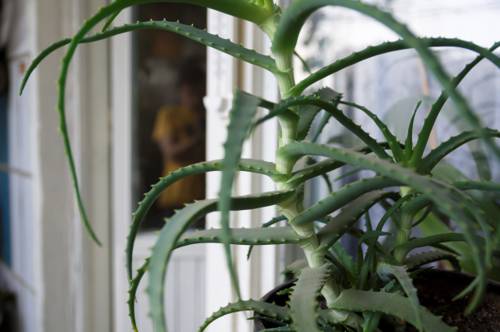
FAQ About Indoor Plant Pest-Resistant Companion Species

What are indoor plant pest-resistant companion species?
Indoor plant pest-resistant companion species are plants that naturally deter pests that commonly affect other houseplants. These companion plants can provide protection by either emitting scents that repel insects, releasing chemicals into the soil that protect neighboring plants, or attracting beneficial insects that prey on pests. Such plants help in promoting a healthy indoor ecosystem and reduce the need for chemical pesticides.

How do companion plants help reduce pest infestations?
Companion plants help reduce pest infestations through several mechanisms. Some plants emit strong scents or essential oils that repel harmful insects. Others release chemicals into the soil that discourage pests or attract beneficial predators, such as ladybugs or lacewings. Together, these companion plants can create a balanced environment that is less hospitable to pests.

Can companion planting replace chemical pest control methods for indoor plants?
While companion planting can significantly reduce the need for chemical pest control by promoting a natural balance, it may not completely replace all chemical methods. For severe infestations, additional treatments might be necessary. However, using pest-resistant companion species can drastically reduce chemical usage, contributing to a healthier and more sustainable indoor environment.

What are some examples of pest-resistant companion plants for indoors?
Some examples of pest-resistant companion plants for indoor settings include mint, basil, marigolds, and lavender. Mint and basil emit strong scents that deter many pests, marigolds release substances that can combat soil-borne pests, and lavender's aroma is known to repel insects like moths and mosquitoes.

How can marigolds benefit indoor houseplants?
Marigolds are beneficial companion plants that can protect indoor houseplants from pests. They release substances in the soil that may deter nematodes and other harmful soil-borne pests. Additionally, the strong scent of marigold flowers can help repel common indoor pests like aphids and whiteflies.

Are there any herbs that act as pest-resistant companions for indoor plants?
Yes, several herbs can act as pest-resistant companions for indoor plants. Herbs like mint, basil, rosemary, and thyme are popular choices. These herbs not only contribute to pest control through their aromatic oils but can also be used in cooking, making them functional and beneficial in multiple ways.

Do all indoor plants benefit from having companion plants?
Not all indoor plants require companion plants, but many can benefit from their presence. Companion plants can help in pest control, improve air quality, and support overall plant growth by creating a more diverse and balanced ecosystem. However, some plants may have specific needs that are not suited to certain companions, so it's essential to choose compatible species.

Is mint a good companion plant for indoor pest control?
Yes, mint is considered an excellent companion plant for indoor pest control due to its strong aroma, which repels common pests such as flies, mosquitoes, and ants. However, mint should be grown in a separate pot to prevent it from overwhelming other plants, as it is highly invasive.

Can using companion plants indoors improve air quality?
Yes, using companion plants indoors can enhance air quality. Many companion plants are effective in filtering pollutants and improving overall air quality. For example, plants like spider plants, snake plants, and peace lilies are known for their air-purifying qualities, in addition to their pest-resistant properties.

How should I arrange indoor plants for effective companion planting?
To arrange indoor plants for effective companion planting, consider the compatibility of plant species in terms of light, water, and humidity needs. Place aromatic herbs and flowers strategically where pests usually congregate, such as near windows or entrances. Ensure each plant has enough space to grow properly and its needs are adequately met to capitalize on the benefits of companion planting.

What pests can lavender repel when used as a companion plant indoors?
Lavender is known to repel a variety of indoor pests when used as a companion plant. Its fragrant oil discourages insects such as moths, fleas, flies, and mosquitoes. Additionally, lavender can bring a pleasant scent to indoor spaces, making it a lovely decorative choice as well as a functional companion plant.

Can companion planting help with fungal diseases in indoor plants?
Companion planting can contribute to reducing the incidence of fungal diseases in indoor plants. Certain companion plants, such as marigolds and nasturtiums, can improve soil health and aeration, thereby reducing the dampness that fungi thrive on. Furthermore, some plant combinations help increase airflow around plants, reducing the likelihood of fungal developments.

Do companion plants require different care than regular indoor plants?
Companion plants generally require similar care to other indoor plants, although specific needs may vary by plant species. It is important to ensure that all companion plants have appropriate levels of light, water, and soil conditions to thrive alongside their plant partners. Some companion plants, like herbs requiring well-drained soil, may have more specific requirements.

Is it possible to grow vegetables indoors with companion plants?
Yes, growing vegetables indoors with companion plants is possible and can be beneficial. Companion plants can help deter pests, improve pollination, and enhance the flavor of nearby vegetables. Typical combo includes pairing tomatoes with basil or cucumbers with oregano, as these herbs can deter pests that traditionally target these vegetables.

What is the main benefit of using pest-resistant companion plants indoors?
The main benefit of using pest-resistant companion plants indoors is the reduction in reliance on chemical pesticides. Companion plants help create a balanced ecosystem that naturally deters pests, promoting healthier plant growth and a more sustainable indoor environment. Additionally, many companion plants can enhance the aesthetic and air quality of indoor spaces.

Do pest-resistant companion plants attract beneficial insects indoors?
While it’s less common for indoor environments to attract many types of beneficial insects, pest-resistant companion plants primarily work by repelling harmful pests. However, should indoor environments allow, these plants can sometimes attract beneficial insects such as ladybugs if they have access outdoors at specific times, potentially aiding in indoor pest control.

Is it necessary to use organic soil when planting companion plants indoors?
Using organic soil is not strictly necessary, but it is often recommended when planting companion plants indoors, especially if the goal is to maintain a natural and chemical-free environment. Organic soils can improve plant health and immunity, potentially enhancing the effects of companion planting in deterring pests.

Are succulents good companions for pest-resistant indoor plants?
Succulents can be good companions for pest-resistant indoor plants, especially if you are looking to add variety to your plant collection. While succulents themselves do not repel pests, they have minimal pest issues and are low maintenance, making them a versatile choice to include with aromatic herbs and flowers that manage pests actively.

How do basil plants act as a natural pest repellent indoors?
Basil plants act as a natural pest repellent indoors by emitting a strong scent that deters common pests such as flies and mosquitoes. The leaves' essential oils are effective in creating an environment that is unattractive to these insects. Basil also pairs well with some indoor vegetables and herbs, enhancing both health and flavor profiles.

Can the use of companion plants affect plant growth negatively?
Companion plants can potentially affect growth negatively if not selected or managed properly. Some plants might compete for nutrients, water, or light, which can stress other plants. It's essential to research each plant's requirements and compatibility to ensure that all plants in the arrangement thrive without hindering each other's growth.
